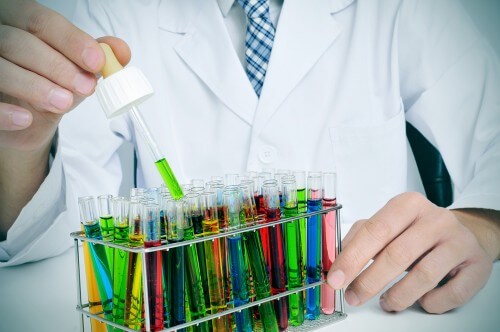The amount will be awarded to the research group of Dr. Eyal Arbali from the Department of Chemistry and the National Institute of Biotechnology in the Negev at Ben-Gurion University during the next five years to finance research aimed at developing experimental methods in the field of synthetic biology

The research group of Dr. Eyal Arbali from the Department of Chemistry and the National Institute of Biotechnology in the Negev at Ben-Gurion University in the Negev, won a prestigious research grant from the European Union - ERC. The grant, in the amount of 1.5 million euros, will be awarded to the group over the next five years to finance research aimed at developing experimental methods in the field of synthetic biology for the purpose of understanding the control of glucose metabolism in cancer cells.
Synthetic biology is a new field of research, based on methods that allow control of basic processes in living systems and even their manipulation. Dr. Arbali's research group tries to answer basic questions in the field of biology with the help of developing and implementing methods to change the genetic code, which is the 'Rosetta Stone', which enables the translation of the DNA sequence into the sequence of amino acids from which proteins are built. In order to explain the principle underlying his research, Dr. Arbali compares amino acids and proteins to words and sentences. "If we treat protein as a sentence, the amino acids are the words that make up the sentence. With a limited number of exceptions, the genetic code is shared by all organisms on Earth. That is, they all have the same vocabulary consisting of twenty common words, or actually, twenty different amino acids. We add a new word to this vocabulary, so we can build different and even more complex sentences - or actually proteins."
Dr. Arbali proposes to develop methods to change the genetic code in bacteria and cell cultures in order to understand the role of acetylation of the amino acid lysine in controlling the metabolism and development of cancer cells. "Acetylation is a chemical modification in which a small chemical group called acetyl is added to the amino acid lysine, and today it is known that this addition to a certain protein can change the activity of that protein. Recently, thousands of acetylation positions were discovered in different proteins, mainly enzymes related to metabolism, such as the ten enzymes responsible for glucose metabolism. In addition, it is known that most cancer cells change the control of metabolic pathways in order to satisfy their metabolic needs. We are trying to understand whether acetylation is a modification with which cancer cells control the activity of the ten enzymes responsible for glucose metabolism."
Currently, research in this field is based on the use of 'normal' amino acids that inaccurately simulate the same modification. "We add a new amino acid to the genetic code that includes the addition of the chemical group. This is the new word we are adding to the vocabulary. This method allows us to directly study the effect of this addition on the activity of the glycolysis enzymes that are controlled by acetylation. The methods we have developed can be applied to any other protein that undergoes modification by acetylation, and the information we collect will help us better understand the differences between cancer cells and healthy cells, thus helping to develop different treatments that will harm cancer cells more and healthy cells less."
Dr. Arbali completed his master's degree in organic chemistry at the Hebrew University of Jerusalem, and in 2008 completed his doctorate in biochemistry at the same university. During his doctoral studies, under the guidance of Prof. Yeshaya (Shay) Arkin, Dr. Arveli studied the structure of transmembrane proteins using infrared spectroscopy. During his post-doctorate in Prof. Alan Persht's laboratory at the University of Cambridge, England (funded by a scholarship from the European Organization for Molecular Biology), Dr. Erbali studied protein folding mechanisms. From there he continued his post-doctoral training in the field of synthetic biology, in the laboratory of Dr. Jason Chin, where he developed methods to expand the genetic code. In 2012, Dr. Arbali joined the Department of Chemistry and the National Institute of Biotechnology at Ben-Gurion University.
